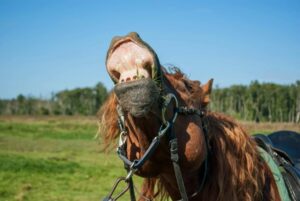
We’ve all heard the age-old advice that shaving makes your hair grow back thicker, darker, and faster. It’s a belief that has been passed down for generations, but is there any truth to it? Let’s dive into the science and history behind this common myth to uncover the facts.
To understand why shaving doesn’t affect the thickness or speed of hair growth, we first need to explore how hair develops. Hair follicles, located just beneath the surface of the skin, are responsible for regulating hair growth. These follicles determine the thickness, color, and rate of hair growth, and they remain unaffected by shaving.
The idea that shaving enhances hair growth has persisted for decades, with some sources suggesting it has been popular for over half a century. But the truth is, there is no scientific basis to support this notion.
Many people believe that their hair feels rougher or thicker after shaving. This misconception likely arises from the tactile sensation of freshly shaved hair, but it has nothing to do with the actual thickness of the hair strands.
Think of a long, thin tree limb; it’s somewhat flexible when it’s long, allowing you to bend it with ease. However, if you trim a few inches off that limb, it becomes stiffer and harder to bend. The same principle applies to shaved hair—it feels coarser simply because it’s shorter.
Another common belief is that shaving causes hair to appear darker. However, this is also a myth. Shaving has minimal impact on the color of hair since it primarily removes the dead hair above the skin’s surface. The hair follicles responsible for color are located deeper in the skin, making shaving irrelevant to hair color changes.
The most persistent misunderstanding about shaving is its effect on the speed of hair growth. It’s a misconception that has been perpetuated for generations, often passed down from parents to their children.
When young individuals start shaving, their hair may not grow very quickly. This can lead them to believe that shaving somehow affects the growth rate. However, as they reach adulthood, their hair naturally grows at a somewhat faster rate. This change is unrelated to shaving and is simply a part of the natural growth process.
If you’re looking to influence the thickness and other characteristics of hair regrowth, waxing is a more effective option than shaving. Unlike shaving, which merely removes hair above the skin’s surface, waxing damages the hair follicles beneath the skin. As a result, hair grows back thinner, lighter, and less dense with repeated waxing.
While we’re debunking hair myths, here’s another one to consider—brushing your hair excessively. Some people believe that brushing their hair hundreds of times a day will make it healthier. However, this practice can actually damage your hair.
Excessive brushing can pull out unprepared hair, split healthy strands, scrape the scalp, and remove hair that isn’t ready to fall out naturally. To maintain healthy hair, it’s best to avoid over-brushing and opt for a more gentle approach to hair care.
The Length Illusion
The misconception that shaving promotes hair growth likely stems from the visual effect of shorter hair. When your hair is shaved, each millimeter of growth becomes more noticeable, creating the illusion of faster growth. However, this is purely a visual trick, and the hair underneath the skin remains unchanged.
Hair Growth Is Determined by Follicles
Hair growth is primarily controlled by hair follicles located beneath the skin’s surface. These follicles dictate the color, thickness, and growth rate of your hair. Shaving only removes the hair above the skin, leaving the follicles intact. As a result, it has no influence on the fundamental factors that govern hair growth.
What Truly Impacts Hair Growth
While shaving may not affect hair growth, there are several factors that do play a significant role in the health and growth of your hair. Here are some practical tips to help your hair grow faster and stronger:
- Regularly trimming your hair helps prevent split ends and breakage, promoting healthier growth.
- Consuming a diet rich in protein and essential nutrients can support hair growth from within.
- Using strengthening shampoos, conditioners, and weekly hair masks can improve the overall condition of your hair.
- Handle wet hair gently to avoid damage, as wet hair is more prone to breakage.
- Always use heat protection products when styling your hair to minimize damage from heat tools.
- Protect your hair from environmental factors like harsh sunlight, pollution, and extreme weather conditions.
Thickening Hair and Rapid Growth
In addition to the shaving myth, there are other hair-related misconceptions worth addressing:
Does Shaving Thicken Hair?
Contrary to popular belief, shaving does not thicken hair. The thickness of your hair is determined by your genetics and hormones, not by shaving. Shaving may create the illusion of coarser hair due to the blunt ends of freshly cut hair, but it doesn’t alter the actual thickness of the hair strands.
Benefits of Shaving Your Hair
While shaving may not impact hair thickness or growth rate, some individuals choose to shave their heads for various reasons. Shaved heads can offer a clean and stylish appearance, provide relief from hair-related issues, and require minimal maintenance.
How to Promote Hair Growth Naturally
If you’re looking to encourage hair growth naturally, consider the following tips:
- Reduce stress, as it can affect hair health.
- Make dietary changes to ensure you’re getting essential nutrients.
- Explore supplements that support hair growth.
- Try topical treatments and essential oils.
- Be gentle with your hair to minimize damage.
- Limit bleaching or coloring, as harsh chemicals can harm your hair.
- Avoid excessive heat styling, which can lead to breakage.
The Origin of this Myth
The myth that shaving can miraculously enhance hair growth has persisted for generations. To understand its origins, we must delve into the historical and cultural factors that contributed to its endurance.
One significant factor in the perpetuation of this myth is generational wisdom. Parents and older family members have often passed down the belief that shaving can lead to thicker and faster hair growth to their younger counterparts. This passing of advice from one generation to another has contributed to the myth’s longevity.
Another contributing factor is the power of observation. When someone shaves their head or a particular body part, they may notice that the regrowth initially feels coarser and denser. This observation, however, can be misleading.
Shaved hair appears thicker because of its shorter length. Each millimeter of growth is more noticeable, creating the illusion of rapid and robust hair growth. This visual trick has reinforced the misconception over time.
Cultural influences have also played a role in perpetuating the myth. In some societies, shaving the head is associated with rituals or traditions that signify renewal or transformation. These practices may have inadvertently contributed to the belief that shaving has a direct impact on hair growth.
The absence of widespread scientific understanding regarding the biology of hair growth has allowed this myth to persist. In the absence of readily available information, individuals have relied on anecdotal evidence and personal experiences to form their beliefs.
In certain cases, marketing and advertising have perpetuated the myth for commercial gain. Hair care product manufacturers have sometimes used this misconception to promote products claiming to accelerate hair growth, further embedding the idea in the public’s mind.
The belief that shaving promotes stronger, thicker, faster, or darker hair growth is nothing more than a persistent myth. Hair growth is primarily determined by the hair follicles beneath the skin’s surface, which remain unaffected by shaving. So, next time you reach for your razor, rest assured that you’re not altering the fundamental characteristics of your hair growth—it’s all in the hands of your genetics and hormones.



